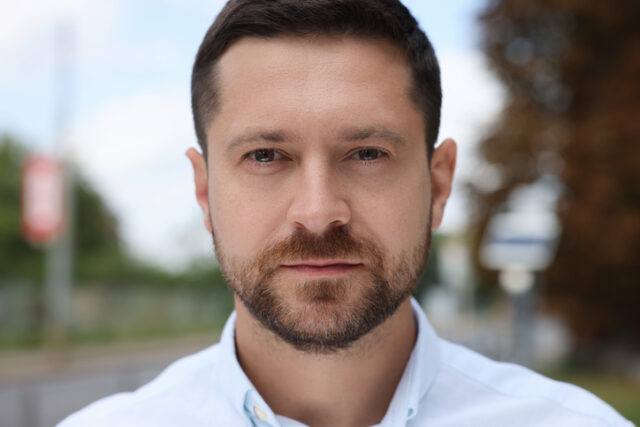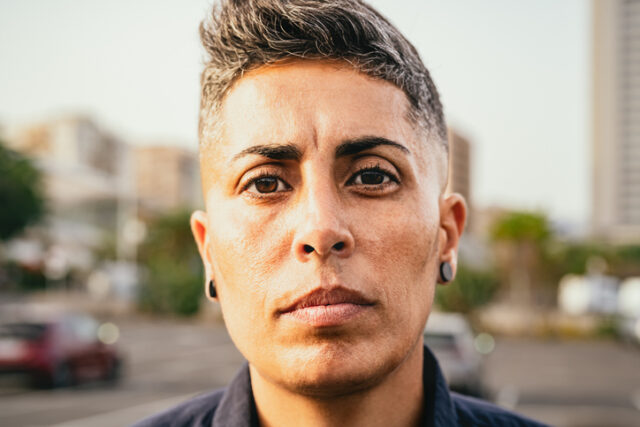Do you feel a bit out of touch with your emotions?

Sometimes it’s hard to pinpoint why, but our words can offer subtle clues into what’s really going on inside of us. While we might not always be fully aware of our emotional state, the phrases we use can reveal a lot about what’s going on beneath the surface. Here are some common phrases that might signal you’re experiencing emotional disconnection.
1. “I’m fine.”

This two-word phrase is a classic go-to when we’re trying to avoid talking about our feelings. While it might seem like a harmless response, it can be a way to mask deeper emotions like sadness, anger, or frustration. If you find yourself constantly saying “I’m fine” even when you’re not, it might be worth exploring what’s really going on underneath.
2. “It doesn’t matter.”

When we’re emotionally disconnected, we might downplay the importance of our feelings or the things that happen to us. If you find yourself frequently dismissing things as “not mattering,” it might be a sign that you’re suppressing your emotions or trying to avoid dealing with them. Remember, your feelings are valid, and it’s important to acknowledge them.
3. “I don’t care.”

Similar to “it doesn’t matter,” this phrase can be a way to distance ourselves from our emotions. If you find yourself saying “I don’t care” about things that you used to care about, it might be a sign that you’re feeling numb or detached. It’s important to pay attention to these shifts in your emotional landscape and explore what might be causing them.
4. “I’m not bothered.”

This phrase can be a way to brush off difficult emotions or avoid confrontation. While it’s healthy to pick your battles, constantly saying “I’m not bothered” might indicate that you’re suppressing your true feelings or avoiding dealing with conflict. It’s important to find healthy ways to express your emotions and address issues that arise in your relationships.
5. “Whatever.”

This one-word response can be a sign of indifference or apathy. When we’re emotionally disconnected, we might not feel invested in the things happening around us. If you find yourself using “whatever” as a default response, it might be a sign that you’re feeling disengaged or uninterested in the world around you.
6. “I’m just tired.”

Fatigue can be a physical symptom of emotional disconnection. When we’re overwhelmed by our emotions, it can manifest as exhaustion or a lack of energy. If you’re feeling chronically tired, it might be worth exploring whether there are underlying emotional issues contributing to your fatigue.
7. “I’m not sure how I feel.”

Emotional disconnection can make it difficult to identify and articulate our feelings. If you find yourself struggling to put your emotions into words, it might be a sign that you’re disconnected from yourself. Take some time to reflect on your inner world and try to connect with what you’re truly feeling.
8. “I’m used to it.”

Sometimes, we become so accustomed to emotional pain or discomfort that we start to normalise it. If you find yourself saying “I’m used to it” in response to negative experiences, it might be a sign that you’ve become desensitised to your emotions. It’s important to acknowledge your pain and get help and support if you need it.
9. “I’m over it.”

Saying you’re “over it” before you’ve had time to process your emotions can be a sign of avoidance. It’s a way to shut down feelings instead of dealing with them. True emotional healing takes time, and pretending to be “over it” might actually be hindering your ability to move forward.
10. “There’s no point talking about it.”

Bottling up emotions and refusing to communicate them can lead to a build-up of resentment and frustration. If you find yourself saying this, it might be a way to avoid vulnerability or potential conflict. However, open communication is key to healthy relationships and emotional well-being.
11. “I don’t need anyone.”

While independence is admirable, everyone needs connection and support at times. This phrase might be a mask for feelings of loneliness or a fear of being vulnerable. It’s okay to admit that you need people – in fact, it’s a sign of strength.
12. “I’m not the emotional type.”

This phrase often serves as a shield, protecting us from vulnerability and perceived weakness. However, everyone experiences emotions, and denying them can be harmful. Embracing your emotional side is a crucial step towards self-awareness and deeper connections.
13. “I just want to be alone.”

While alone time is essential for everyone, consistently isolating yourself might be a sign of emotional disconnection. It can be a way to avoid facing difficult emotions or dealing with the challenges of relationships. If you find yourself craving solitude excessively, it might be worth exploring what’s driving that need.
14. “I don’t have time for this.”

Dismissing your feelings or other people’s as a matter of time management is a way to prioritise tasks over feelings. This can lead to neglecting your emotional needs and the needs of those around you. Making time for emotional connection is crucial for overall well-being.
15. “I don’t know what you want from me.”

This phrase often indicates a lack of self-awareness and an inability to understand other people’s emotional needs. It can be a way to deflect responsibility for your own emotions or avoid engaging with someone else’s feelings. Taking the time to understand your own emotions and the needs of those around you can improve your communication and relationships.
16. “Just forget about it.”

Telling yourself or othe people to “just forget about it” is an attempt to dismiss emotions instead of processing them. This can lead to unresolved feelings and resentment. Allowing yourself to feel and work through your emotions is a healthier approach to emotional well-being.




